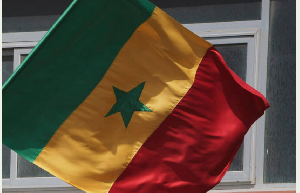Opinions of Sunday, 13 September 2020
Columnist: goldstreetbusiness.com
Community mining’s new concept, old problem
When President Nana Akufo-Addo, in 2019, officially launched the pilot stage of the new Community Mining Programme (CMP) at Wassa Akropong in the Western Region, Ghanaians exhaled a collective sigh of relief.
The CMP, an initiative in the making since 2018, has the potential to curb the environmentally destructive, and immensely dangerous practice of illegal small scale artisanal mining, widely known around the country as galamsey, which has polluted both farmlands and water bodies with equal attrition and claimed lots of lives, both through operational accidents and also as a result of clashes between practitioners and local community members, security forces and workers of large scale mining firms whose concessions have regularly been encroached upon by these illegal miners.
To be sure, the CMP initiative has been well designed. Some 4,500 small scale miners have been trained in sustainable mining practices at the University of Mines and Technology at Tarkwa and are now being allocated lands by government in the various mining districts nationwide to carry out artisanal mining in a regulated, environmentally friendly way.
Enthused President Akufo-Addo when formally flagging off the initiative, CMP will ensure that “mining will be done in the right way, within the tenets of the law and will not destroy our natural resources.”
Worryingly though, an old – and crucial – problem has already started emerging even as the rollout of the initiative is still in its early stages. This is the problem of encroachment on the concessions held by large scale mining companies.
With the gold price now at an all time high of some US$2,000 per ounce, both large scale and small scale miners alike have a bigger incentive to protect the mining lands within their reach than ever before.
Actually it was this problem that brought the issue of galamsey to the front burner of national attention, even before the country’s media decided to come together and launch a national campaign to stop it because of its deeply adverse impact on the environment, where farm lands and water bodies have been made unusable because of the indiscriminate use of toxic chemicals used to process the ore that is mined.
The encroachment on the concessions at Obuasi, the flagship mine of Ghana’s oldest, and for a long time the biggest, mining company in Ghana, AngloGold Ashanti, led to violent clashes between the illegal miners and security forces and employees of the company that claimed many lives, most notably that of the mining firm’s Corporate Communications Manager, John Owusu.
This situation was replicated albeit to lesser degrees around nearly all the concessions held by large scale mining firms, affecting ongoing production levels, new exploration and ultimately their willingness to invest further in their activities.
Combined with worries over government’s declared intention to further tighten the fiscal framework within which they operate and a slump in global gold prices, this led to new investment in the industry falling to its lowest levels in two and a half decades.
The problem – and the apparent failure of the CMP to resolve it – is a complex one. At its centre is the fact that gold is only located in certain places and it is the large scale mining firms that have the technological capacity to determine where those places are.
While some illegal miners have satisfied themselves with focusing on marginal gold fields where mineral endowment is too small to attract the large mining firms, many others are drawn to the concessions of such companies where the existence of relatively large gold deposits has already been established.
To be sure, the architects of the CMP anticipated the problem and prepared for it. The ICT software application called “Galamseystop’ which is used by the Inter-Ministerial Committee on Illegal Mining (IMCIM) which is charged with stopping the practice and replacing it with properly licensed and regulated artisanal mining, has adopted it to track the activities of small scale miners operating under the CMP.
While not precise, the app has the capacity to do this sufficiently well to identify licensed small scale miners who go beyond their allocated boundaries into the concessions held by large scale mining firms.
But this has not stopped the phenomenon from happening repeatedly in a trend that is worsening as more CMP licensed miners are licensed and allocated land near to the concessions of the large mining companies.
Mining industry analysts have no doubts about why this is happening. Simply put it is the result of collaboration by local society and a lack of political will to enforce the allocated boundaries.
Collaboration by host community members, including both the local traditional and government authorities is primarily the result of economics. The large mining firms are all foreign-owned while the artisanal miners are primarily indigenes.
Consequently, the locals see artisanal mining revenues as potentially more beneficial to them than large scale mining revenues and so willingly collaborate with the former to outwit the latter.
Acutely aware of the situation, the large scale mining firms have sought to employ as many locals as possible – for instance at Goldfields Ghana’s Tarkwa mine 70% of the entire workforce are indigenes of the host communities – and have committed millions of dollars into corporate social responsibility initiatives that provide host communities with education, healthcare, socio-economic infrastructure and financing for micro-enterprise. While the host communities have happily taken the benefits they still moan that not enough is being done.
Actually they are right, but the fault is not that of the mining firms; rather it is government’s. The mining firms pay royalties of between 3% and 5% to government supposedly for use in developing the host communities and this money far outweighs what the mining firms could possibly spend on CSR and still remain profitable.
Government however, as an astute political animal spends most of this money on relatively high population urban areas where the majority of the election votes are cast and deliberately turns round to publicly accuse the mining firms of not doing enough CSR for their hosts.
The mining companies themselves have not done enough to explain to their hosts what is really happening, instead devoting its efforts in this regard to lobbying government to spend a larger proportion of the royalties on local development.
Related to this is the problem of political will. Having denied the host communities their due from royalties, government is reluctant to take action against the artisanal miners who are encroaching on the concessions of the large mining companies who it has already cast as the villains of the piece.
With general elections looming just a few months away, the reasoning of officialdom is simple: local host communities have a vote whereas the owners of the large mining firms – nearly all of them foreigners – do not.
The ascendancy of political exigencies over economics however may prove a dangerous way to go; the contributions of the large mining firms to Ghana’s economy is many times larger than those of the artisanal miners who are being allowed to break the law and enrich themselves at the expense of the large mining firms.
In 2018 alone the formal mining industry’s fiscal payments amounted to GH¢2.36 billion, up from GH¢2.16 billion in 2017. It is also the leading generator of foreign exchange, contributing 39% of merchandise export revenues in 2018, and repatriating US$2.8 billion of the US$3.8 billion it earned last year.
Encroachment on their concessions continuing under the CMP stands to lower new investment and ultimately lower ongoing production as was the case with AngloGold Ashanti at the height of its crisis.
Optimists are hoping that with the election behind it, government would start addressing the problem from 2021. But with COVID-19’s impact forcing government to be socially sensitive, even outside of election campaigning this is going to be harder to do next year than it would have been before coronavirus arrived in Ghana.














